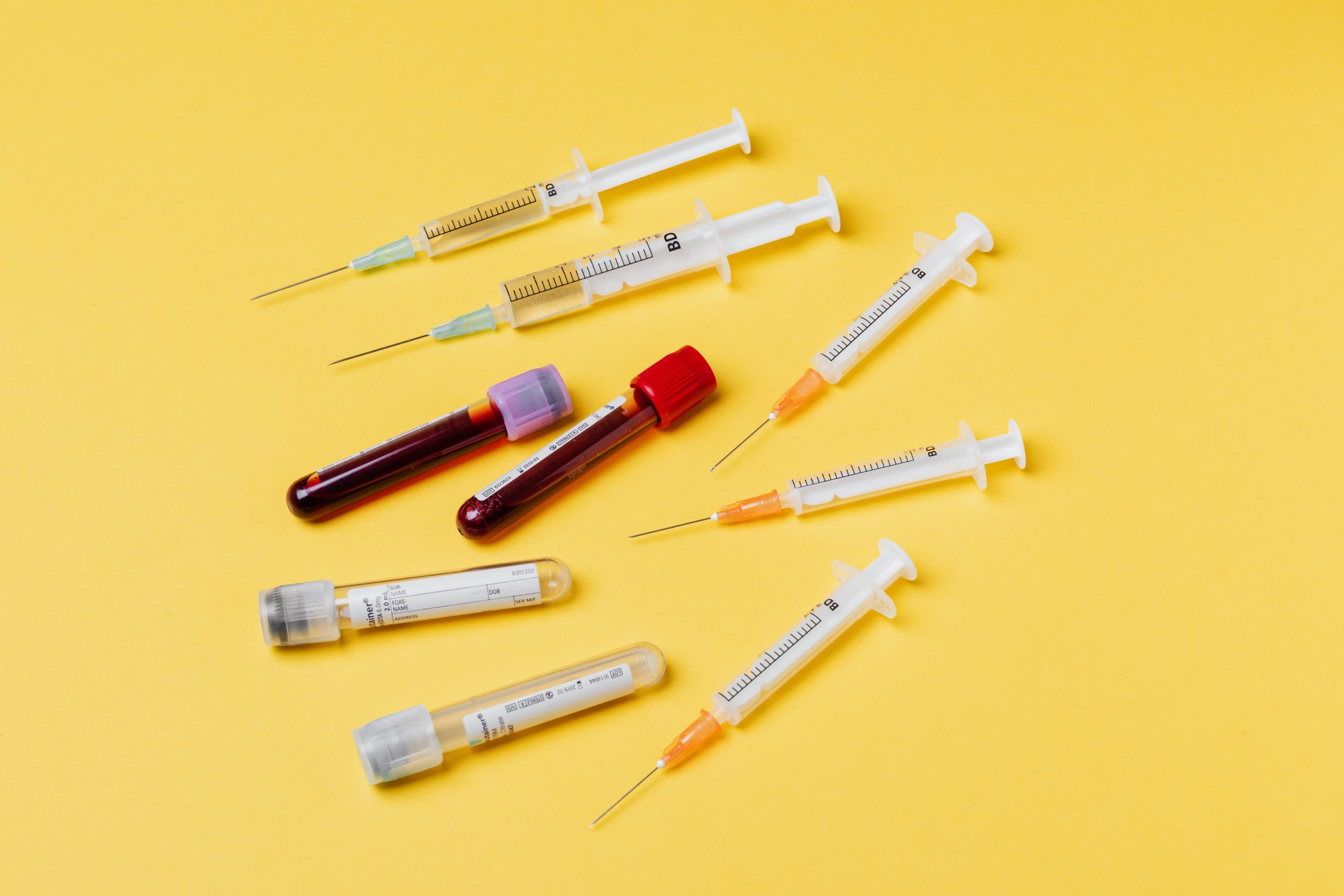
Who hasn’t heard the age-old adage ‘Health is Wealth’? Good health is real wealth, it’s the most important part of our existence. Health is a state of complete emotional and physical well-being. Good health is vital for handling stress and living a more active, longer, disease-free life. Eating a balanced diet and engaging in regular physical activity are some ways to achieve this.
But is that enough to maintain the optimal state of health in our fast-paced lives? The short answer is ‘No’. Along with a balanced diet and regular exercise, a regular preventive health check-up (PHC) is a must for maintaining good health. Preventive care assesses your current health state, helps identify any underlying health issues, helps investigate deficiency, infection, or diseases, and is a great way to help you stay overall healthy.
Regular general wellness tests and screenings are an important part of preventive care. Keep in mind that prevention is always better than cure! General wellness tests and screenings are a preventative method of managing health risks and improving overall health. The American Medical Association strongly recommends periodic health assessments or examinations to stay fit and healthy.
One must compare their general wellness screenings results with historical data to track any changes or variations in the statistics. This will also provide a comparison between levels and markers that are generally considered healthy. This would provide a clear picture of where you stand in terms of your overall health and wellbeing.
Think of your body as a vehicle. You get your vehicle serviced and oil changed regularly to get more life out of your vehicle. The same is the case with your body – you take general wellness tests and screening as part of your health routine, to get more life out of you. Your healthcare visit may include:
The lab tests included as part of a general wellness screening may vary depending on age, gender, and risks. As this article is primarily focused on general wellness blood tests, five simple blood tests are suggested during your visit to a healthcare practitioner. Other tests may also be recommended by your doctor based on your personal health profile (PHP). So, during your regular check-up, if your doctor hasn’t suggested one or more of these blood tests, you should request a lab order that has the following tests.
Comprehensive Metabolic Panel (CMP) consists of tests that measure enzymes, proteins, hormones, sugars, vitamins, and minerals that are related to the metabolism of the body. It is used to monitor conditions like kidney disease, diabetes, high blood pressure, and much more. A CMP blood test usually measures 14 different substances in the blood and provides significant information about your body’s chemical balance and metabolism.
A CMP includes tests for the following:
How regularly should one get this test?
This test should be taken as part of a routine check-up, or when someone is monitored for a specific condition like hypertension or diabetes or is taking medications that may affect their kidney or liver.
Complete Blood Count (CBC) is used to count the number and types of cells in the sample of your blood, specifically red blood cells, white blood cells, and platelets. The doctor may recommend a Complete Blood Count (CBC) Blood Test to monitor and evaluate the overall health of the cells that make up the blood.
Several features of the blood are measured in the Complete Blood Count.
The Red Blood Cell (RBC) evaluates:
The CBC blood test also provides important information on various red blood indices including:
White blood cell (WBC) tests:
White blood cells count: It defines the total number of white blood cells in your blood sample. WBC helps your body fight against infection. A CBC measures the number of five types of white blood cells present (neutrophils, lymphocytes, monocytes, eosinophils, and basophils).
Platelet tests:
How regularly should one get this test?
A CBC is usually ordered as part of the yearly physical exam, but based on age and other factors, a doctor must be consulted to confirm how often one should get tested.
A blood sugar test measures the level of glucose (sugar) in your blood. High levels of blood sugar are an indicator that one’s body has an impaired ability to either produce or respond to the hormone insulin, the hormone that moves sugar into the cells to be used for energy. It might also suggest that one might be pre-diabetic.
How regularly should one get this test?
Blood sugar/glucose levels should be checked regularly to monitor blood sugar levels. It is recommended that fasting glucose level or Hemoglobin A1c (HbA1C) (an average amount of glucose in the blood over the last 2 to 3 months), be checked once a year, or more often if the person’s blood pressure is high (1)
Cholesterol is a waxy, fat-like substance found in the blood and every cell of the body. Some amount of cholesterol is needed to keep the cells and organs healthy. There are two main types of cholesterol: low-density lipoprotein (LDL), aka “bad” cholesterol; and high-density lipoprotein (HDL), aka “good” cholesterol. A cholesterol test helps measure the amount of each type of cholesterol and certain fats (triglycerides) in the blood. The cholesterol test is also named the Lipid Panel/Lipid Profile test.
How regularly should one get this test?
Individuals who are at increased risk for heart disease or who have diabetes should get tested at least once a year. Additionally, these tests should be done more frequently by those who are obese, drink heavily, or smoke.
Those with normal levels of cholesterol and triglycerides are recommended to consult their doctors about testing frequency.
Thyroid tests help evaluate thyroid gland function, diagnose thyroid disorders, and monitor the treatment of thyroid disorders.
A thyroid panel is a group of tests including TSH (thyroid-stimulating hormone), Free T4 (thyroxine), Free T3, or total T3 (triiodothyronine), Thyroid Peroxidase, and Thyroglobulin Antibodies.
TSH (thyroid-stimulating hormone) is a pituitary hormone that is part of the feedback system of the body that controls thyroid hormones. This is usually the first test the doctor will do to check for thyroid hormone imbalance.
T4 (thyroxine) and T3 (triiodothyronine) tests are used to determine hypothyroidism (underactive thyroid) or hyperthyroidism (overactive thyroid). T3 and T4 are the two important hormones secreted by the thyroid gland. Nearly all the T4 (and T3) found in the blood are bound to protein. The rest is unbound (free/active) and can enter and affect the body’s tissues. In addition to T4 and T3, this test also measures the amount of free (unbound) T4, free (unbound) T3, and the total T3 (bound plus unbound) in the blood.
Thyroid antibodies: This test also helps detect different types of autoimmune thyroid conditions. Some important thyroid antibody tests include microsomal antibodies (aka thyroid peroxidase antibodies or TPO antibodies), and thyroglobulin antibodies (aka TG antibodies). Detection of the same is very helpful in determining the cause of thyroid problems.
How regularly should one get this test?
One must consult their doctor about how frequently they should get tested. Usually, testing is more frequent when symptoms of hypothyroidism or hyperthyroidism exist.
Lab Testing API offers a full range of medical lab tests to support your well-being. From men’s and women’s health to hormone and fitness testing, our easy, affordable, general wellness tests will fit your pocket and lifestyle. You need not spend long hours in a doctor’s office or waiting room, all you have to do is go on our website, find the test you want, pay, and off you go to get tested. As soon as the testing lab releases your results, you are immediately notified.
Getting regular general wellness tests and screenings is one of the most important ways to keep track of your overall physical well-being. Getting tested at routine intervals can allow your healthcare practitioner to assess your current health state, helps in identifying any underlying health issues, and is a great way for you to make informed decisions about your health.
Disclaimer: Various authors and agencies, including Health Alliance Plan of Michigan, Harvard University Health Services, Healthline.com have been referenced to prepare this informational material. Though there is consensus in many areas, it is not reflected in all the tests. Therefore, it is highly recommended to consider one’s specific health situation and specific risk factors, when discussing general wellness tests with your doctor and making decisions about lab testing.
Written by Dr. Shikha Sharma, Reviewed by Dr. Harshi Dhingra
